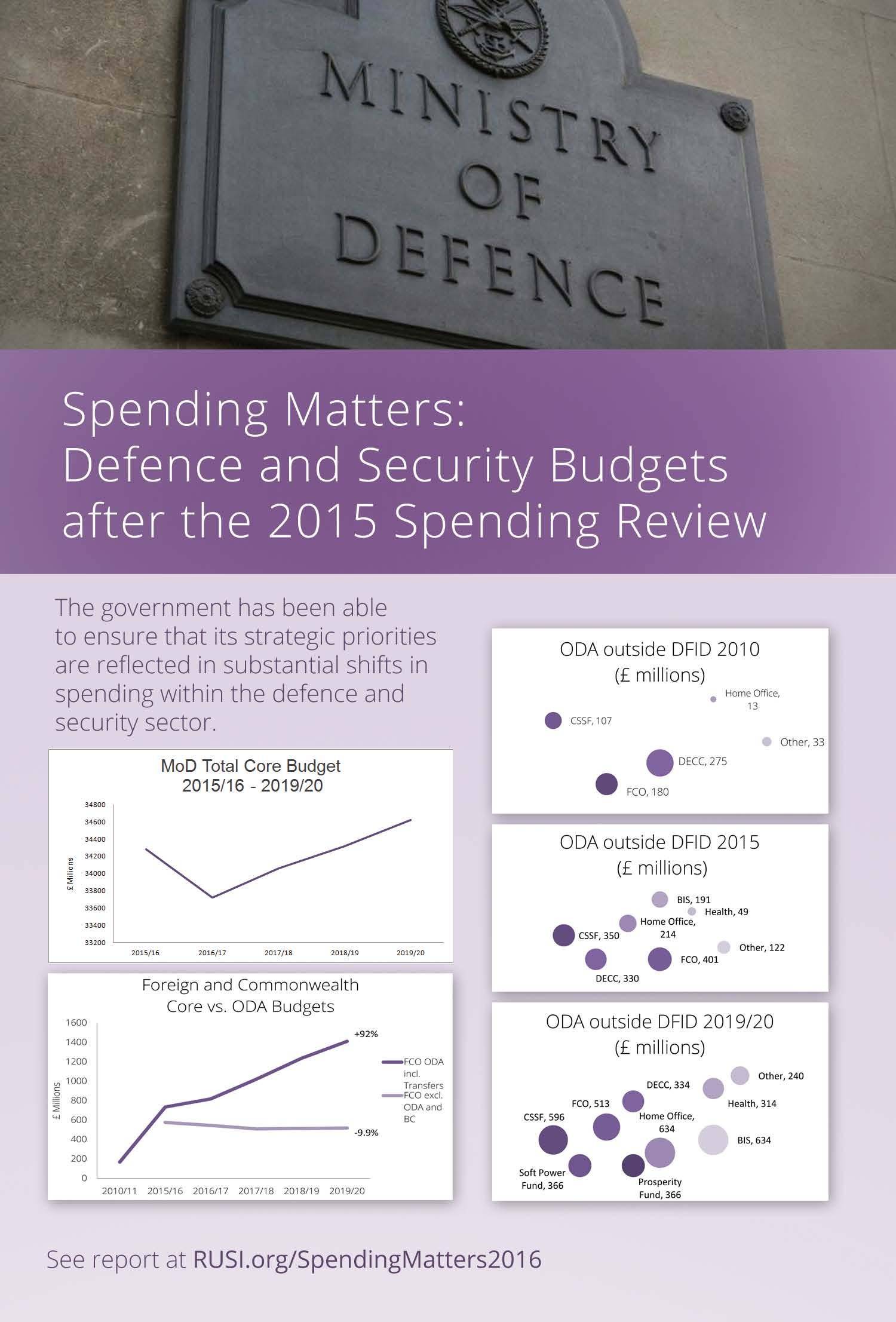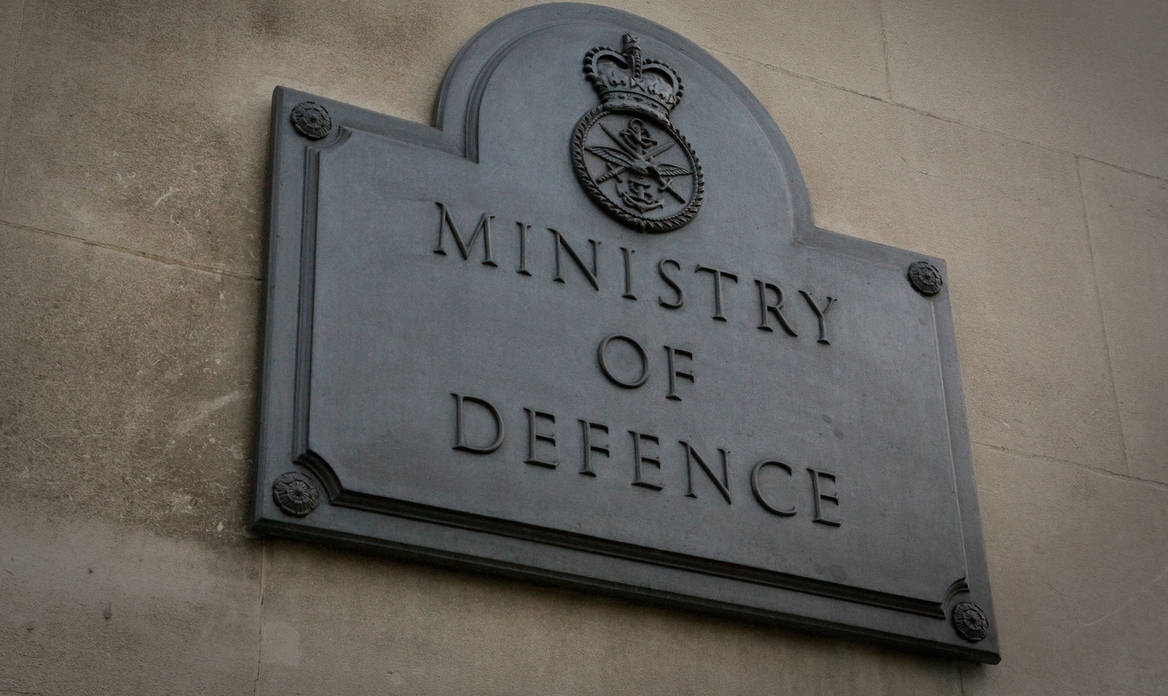Spending Matters: Defence and Security Budgets after the 2015 Spending Review
While the 2015 Spending Review confirmed a stabilisation in the total defence and security budget after a period of sharp decline, a new RUSI report reveals a substantial shift in the way this is being spent across the government.
One of the key points of reference for understanding the 2015 Strategic Defence and Security Review (SDSR) is the 2015 Spending Review (SR15), conducted in parallel and published two days later. This briefing examines for the first time the outcomes of SR15 for the main SDSR-related departments – the Ministry of Defence (MoD), the Home Office, the security and intelligence agencies (SIAs), the Foreign and Commonwealth Office (FCO) and the Department for International Development (DFID).
The briefing shows that while the budgets of the MoD, Home Office and DFID, which account for some 93% of total SDSR-related spending, will remain relatively stable, both the SIAs and the FCO are set to gain significant increases in their spending power, as will a number of smaller departments that have not previously played a significant role in foreign policy.
There will be increases in spending on cyber-security and countering terrorism, defined by the Spending Review as ‘Tier One threats’, with the budget of the SIAs given a 16.7% real-terms boost as a result. The total budget of the FCO is projected to increase by some 42% in real terms over four years.
The MoD budget will increase by 1.0% in real terms over the next four years. Although if existing force structures are to be maintained, alongside plans for increased spending on new equipment, substantial efficiency savings will be needed.
If current predictions for the economy prove to be unrealistically optimistic, a new mid-term Spending Review cannot be ruled out, with some of the more generous 2015 SDSR commitments open to re-examination as a consequence. If this were to occur, current commitments to spend 2% of GDP on defence and 0.7% of GNI on Official Development Assistance are likely to be seen as ceilings not floors.

WRITTEN BY
Malcolm Chalmers
Former Deputy Director General, RUSI


